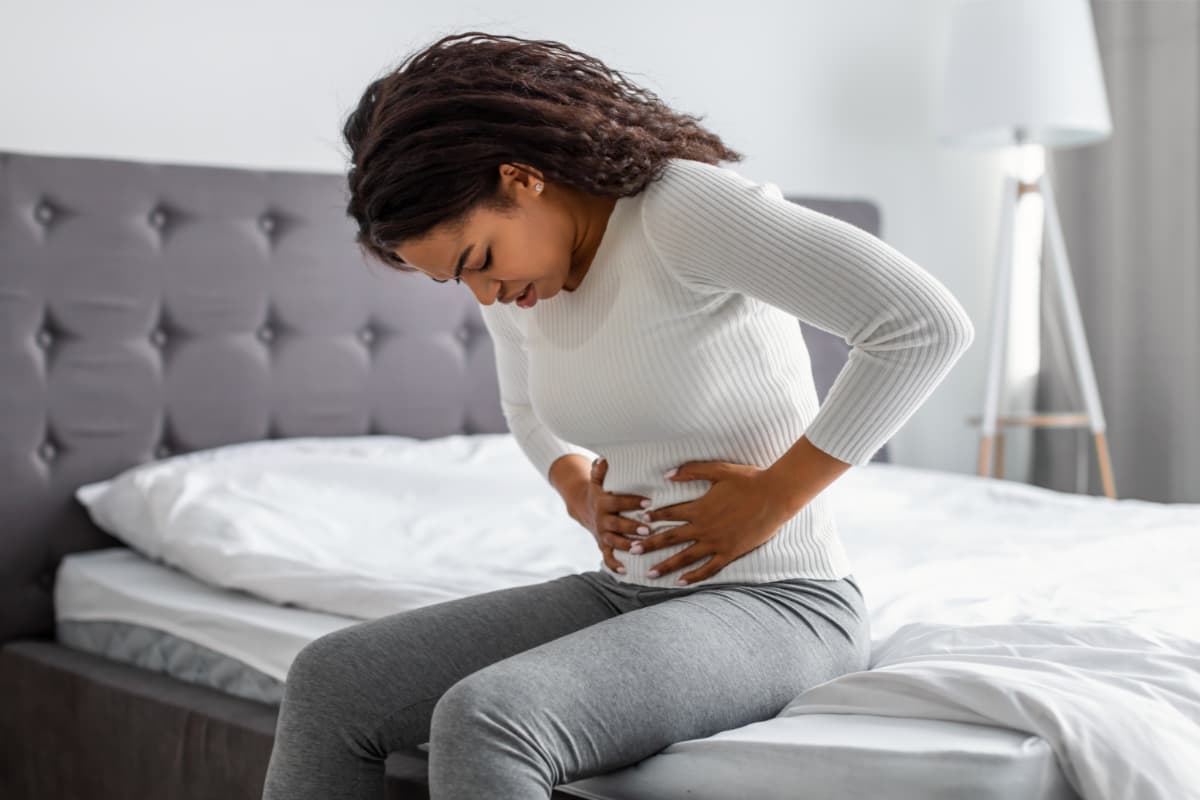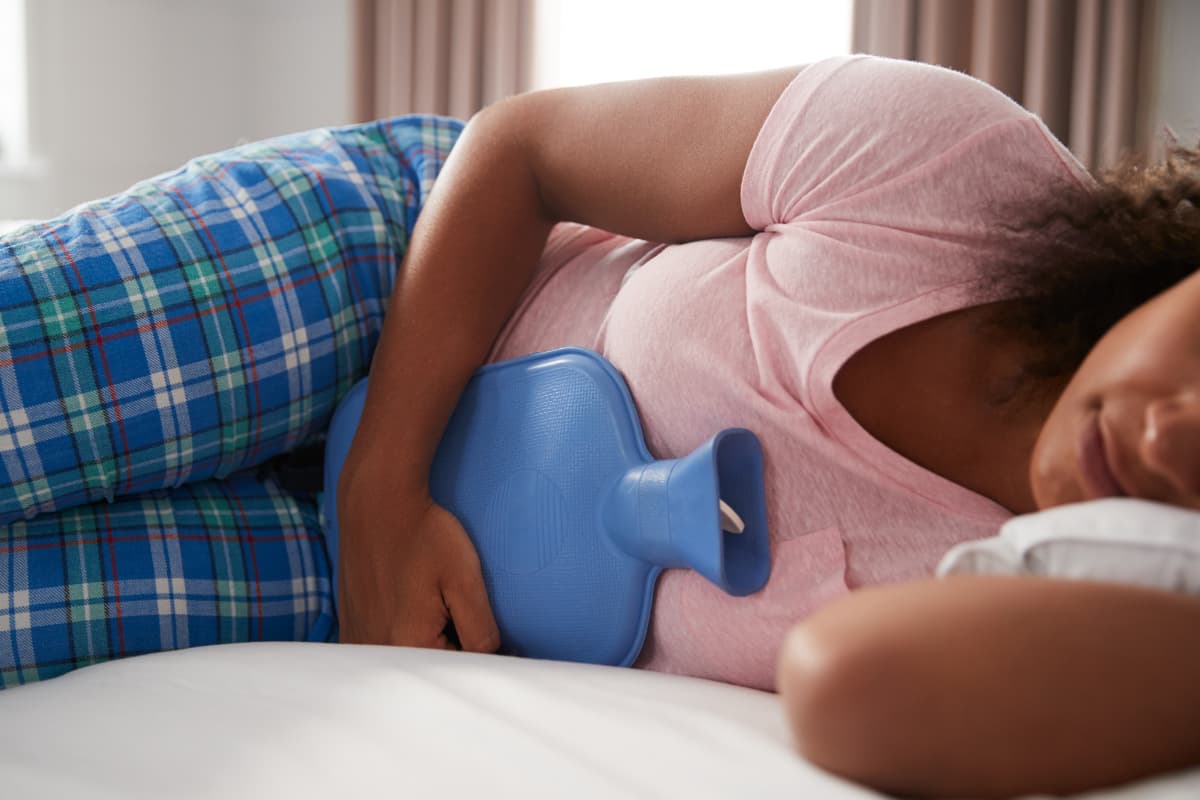What to Know About Endometriosis and Perimenopause

If you’ve been managing endometriosis, you might be wondering how your condition may change during perimenopause and beyond. Will your symptoms get better or worse? Will your transition be impacted by endometriosis? Learn about the impacts of perimenopause and endometriosis.
What is Endometriosis?
Endometriosis is a complex condition that causes endometrial tissue that lines the uterus to grow in places it’s not supposed to. This tissue can be found in the fallopian tubes, on the ovaries, behind the uterus, and even in the abdominal cavity and on other organs.
Experts estimate that approximately 10% of women worldwide—about 190 million— have endometriosis. Once thought to be rare, we now know that endometriosis is a common cause of pain and infertility. While research in this area is growing, the available treatments are focused on managing symptoms.
Can You Have Endometriosis in Perimenopause?
Yes, you can. It might be difficult to tell if you’re in perimenopause or just having endometriosis symptoms. Symptoms common to both perimenopause and endometriosis include:
- Heavy periods
- Irregular periods
- Gastrointestinal problems
- Constipation
- Urinary issues
- Pain during sex
- Fatigue
Track your symptoms and discuss them with your healthcare provider. To confirm whether symptoms are related to endometriosis, your provider may conduct a pelvic exam, order tests, and perform a laparoscopy.
Does Endometriosis Get Worse in Perimenopause?
During perimenopause, especially in the early stages, estrogen levels dramatically ebb and flow. Because endometriosis is an estrogen-sensitive disease, these fluctuations in estrogen levels can cause periodic worsening of endometriosis symptoms.
Researchers have found that the impact of perimenopause is most pronounced for people with advanced stage III and IV endometriosis.
What Happens With Endometriosis When You Go Through Perimenopause?
As you progress towards menopause, estrogen levels begin to stabilize at their new baseline low level. Once this occurs, most people will experience an improvement or even complete relief of their endometriosis symptoms.
For a small number, unfortunately, endometriosis can persist after menopause. Experts have found that 2-5% of women will continue to experience endometriosis symptoms after menopause.
Women with endometriosis often enter perimenopause earlier than other women, and they are at greater risk of developing health problems related to low estrogen. Often, menopausal hormone therapy (MHT) is recommended for those who experience early menopause. However, researchers have found a possible link between MHT and an increased risk of postmenopausal endometriosis.
Postmenopausal endometriosis is associated with its own health risks, including an increased risk of ovarian cancer. More research is needed to determine if MHT can be safely recommended for women with endometriosis in perimenopause. Until science knows more, each individual should weigh the risks and benefits of MHT with their healthcare provider.
Easing Endometriosis Symptoms
There is currently no cure for endometriosis. Each person has a unique experience with symptom management strategies, and there is no universal protocol. During fertile years, doctors often prescribe hormonal contraceptives to help control the symptoms of endometriosis. However, this is not the treatment of choice during perimenopause and postmenopause.
The following strategies may be helpful:
- Heating pads and warm baths
- Non-steroidal anti-inflammatories (NSAIDs) like Advil, Motrin and Aleve
- Exercise
- Mindfulness strategies
- Complementary and alternative therapies such as acupuncture and massage
- TENS (transcutaneous electrical nerve stimulation) devices
- Surgery to remove endometrial tissue and scar tissue
Plan for Changes
For the majority of people, endometriosis symptoms improve after the menopause transition. Unfortunately, there are no guarantees, and for some women, endometriosis can persist even after menopause.
Maintain open communication with your healthcare provider over this period of change. That way, you can adjust your plan and get the help you need as your experience changes. It’s important to seek care sooner rather than later; endometriosis can lead to complications and increase the risk of cancer if left untreated. Don’t allow your concerns to be dismissed. Be a strong advocate for yourself to ensure you receive the care and support you deserve.
Looking for more expert support on menopause stages, symptoms and strategies for relief? Download the Midday menopause app from the App Store or visit us at Midday.Health.
Jennifer Turkyilmaz, RN, BSN, is a medical writer who worked for many years in women’s health as a high-risk pregnancy nurse. She is also a newly menopausal woman who wishes she had known more about what to expect before it happened to her.
Sign up for more unique women’s health content
By submitting this form, you agree to the Lisa Health Privacy Policy and Terms of Use


